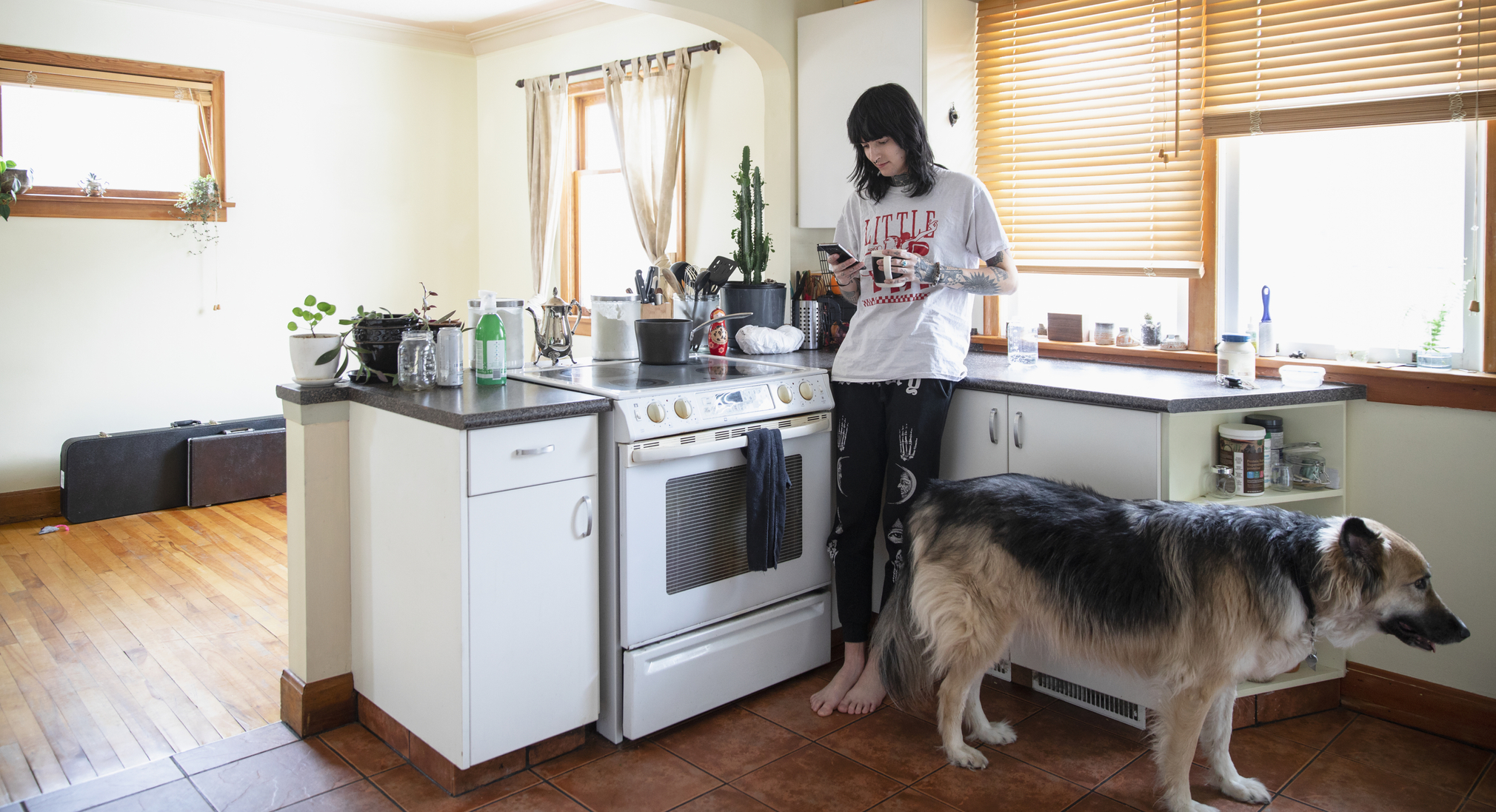Are Pet Deposits Refundable?


Written by Shawnna Stiver on July 22, 2025
Pet-friendly rentals are more popular than ever, with more than 58% of renters now living with at least one pet, according to a 2024 Zillow survey. And as more rentals welcome furry companions, pet deposits have become a common way for landlords to protect their properties. But how — and when — you get that money back isn’t always so clear.
Pet deposits are usually refundable as long as your pet doesn’t cause damage to the rental while living there and you meet all the conditions outlined in your lease, but some landlords may require a non-refundable pet deposit. Others may specify that the property is returned to its original condition before your pet deposit is returned. The easiest way to determine if your pet deposit is refundable is to check your lease agreement. Let’s go over what this means for you and your furry friend.
What does a pet deposit cover?
A pet deposit is a one-time, upfront payment that covers potential damage caused by your pet during your lease. Unlike monthly pet rent or a non-refundable pet fee, this deposit is usually refundable if no damage occurs.
Typical uses for the deposit include scratched hardwood floors, chewed window blinds, stained carpets, lingering pet odors, and flea infestations that require professional cleaning. If your pet damages landscaping or leaves behind excessive fur or odor, the deposit may be used for those cleanup costs too. Pet deposits, like security deposits, cannot be used to cover normal wear and tear. They are intended only for damage beyond ordinary use.
How do I know if a pet deposit is required?
Your lease agreement should clearly state whether a pet deposit is required and how much. Some local laws may limit the amount a landlord or property manager can charge. Landlords may also choose to skip pet deposits, and instead charge monthly pet rent or a non-refundable fee.
If you have a large dog, multiple pets, or a restricted breed, your landlord might ask for a higher amount. Properties in more competitive rental markets may charge both a deposit and pet rent. Keep in mind that federal laws also outline certain types of animals as service or support animals, which are treated differently than pets under federal housing guidelines.
How much is a pet deposit?
Pet deposits usually range from $100 to $500 per pet, depending on factors like the property’s location and your pet’s size or breed. Larger breeds like German Shepherds, Pitbulls, Rottweilers, or Huskies may have higher deposits due to potential property damage, noise complaints, or insurance liability. On the other hand, smaller, low-shedding or hypoallergenic pets like pugs or poodles may require smaller deposits, especially if the rental unit has hard flooring and minimal carpet.
In high-rent cities like New York or San Francisco, pet deposits are usually more expensive. In smaller towns or areas with a lower cost of living, landlords may accept lower deposits or offer more flexibility. Some states also cap how much landlords can charge for all deposits combined. If you’re still early in your rental application process, ask about pet fees upfront and make sure they’re outlined in your lease. Clarify whether the pet deposit is refundable — and under what conditions.
Is a pet deposit refundable?
In most cases, you can get your pet deposit back — but only if your pet doesn’t cause damage and you meet the conditions outlined in your lease. Whether your deposit is returned depends on the language in your lease agreement and the condition of the rental when you vacate.
State laws vary, but many require landlords to return refundable deposits within 14 to 30 days after move-out. To avoid confusion or delays, give your landlord proper notice, provide a forwarding address, and request an itemized list if deductions are made. Always ask if the pet deposit is refundable before signing the lease, and remember to get it in writing.
When a pet deposit is refundable
A pet deposit is refundable when:
- Your pet didn’t cause visible damage.
- You thoroughly cleaned pet-related areas.
- You followed all pet rules in your lease.
- You gave proper notice and moved out on time.
- You documented the unit’s condition at move-in and move-out.
To ensure you meet your responsibilities and get your pet deposit back, take photos, save receipts for cleaning, and use a moving checklist.
When a pet deposit is not refundable
Your deposit may not be refunded if:
- Your pet caused damage to flooring, baseboards, blinds, or doors.
- There were lingering odors, urine stains, or signs of fleas or pests.
- You broke pet-related lease terms.
- You didn’t clean thoroughly before moving out.
- You left without proper notice.
If your landlord makes deductions, most states require them to provide an itemized list. If you feel the charges are excessive or unjustified, you can ask for clarification or dispute them in writing.
What happens if your pet causes damage?
If your pet does cause damage, your landlord has the right to use some or all of your pet deposit to cover the cost of repairs or professional cleaning. This might include replacing carpet, repainting damaged walls, repairing scratched wood, or treating the unit for fleas or odors.
If the repair costs exceed the amount of the pet deposit, your landlord may deduct the remainder from your security deposit or send you a bill, depending on your lease and local laws. In serious cases, unpaid damages could even be sent to collections, affecting your rental history or credit score.
Keeping your rental clean and addressing any damage before you move out is the best way to avoid losing your deposit or owing additional costs.
Pet deposit vs. pet rent and pet fees
If you’re renting with a pet, it’s important to understand the different types of pet-related costs because they don’t all work the same way. Some charges are refundable, others are not, and they can add up quickly if you’re not prepared.
Here’s how each one works and what it means for your budget:
- Pet deposit: A one-time, refundable payment meant to cover potential damage caused by your pet. If your pet doesn’t cause damage and you meet the terms of your lease, you should get this money back.
- Pet fee: A one-time, non-refundable charge that allows you to have a pet in the rental. Unlike a deposit, this fee won’t be returned even if your pet causes no damage.
- Pet rent: A monthly, non-refundable charge added to your rent, typically ranging from $25 to $100 per pet. This fee helps the landlord offset wear and tear from pets over time.
While these costs are common, they’re not interchangeable. Always ask your landlord whether the pet deposit is refundable, and clarify the total amount due, including recurring charges.
These fees must be clearly spelled out in your lease agreement.
How to protect your pet deposit and your wallet
Pet deposits are refundable but only if your pet leaves the home in good condition and you follow the correct procedures. Here’s how to increase your chances of getting your money back:
- Review your lease carefully: Understand your landlord’s pet policies, any cleaning requirements, and what qualifies as damage.
- Take photos at move-in and move-out: This gives you proof of your pet’s impact — or lack thereof — in case your landlord claims otherwise.
- Clean thoroughly before moving out: Pay extra attention to carpets, baseboards, and pet areas. Consider professional cleaning if needed.
- Fix small issues early: Patch scratches, repaint scuffed trim, and use odor neutralizers for pet smells. These small fixes can protect your deposit.
- Stay in communication: Let your landlord know your move-out timeline and ask for any specific cleaning expectations in writing.
If possible, schedule a walkthrough with your landlord before you move. That gives you a chance to address any last-minute concerns that might otherwise result in deductions.
Looking for a rental that welcomes your furry friend?
Zillow’s rental search center can help you find a pet-friendly rental. Use filters to narrow your search to places that accept dogs, cats, or other pets. With the right tools and a little planning, you’ll be one step closer to finding a place both you and your pet will love to call home.
Find an apartment you’ll love on Zillow
With Zillions of up-to-date listings and filters for your must-haves, it's easy to find your perfect apartment on Zillow Rentals.
Search rentals


